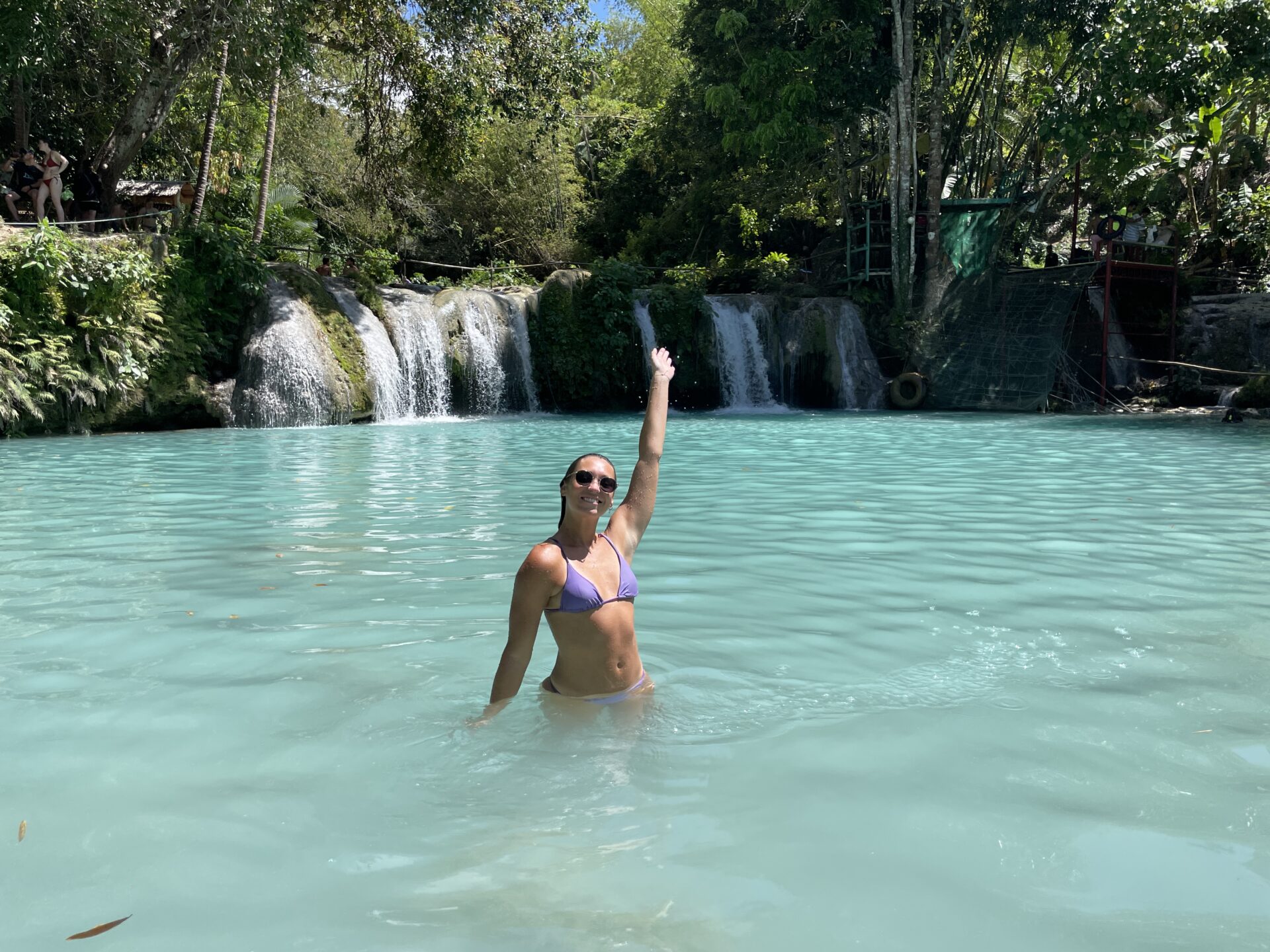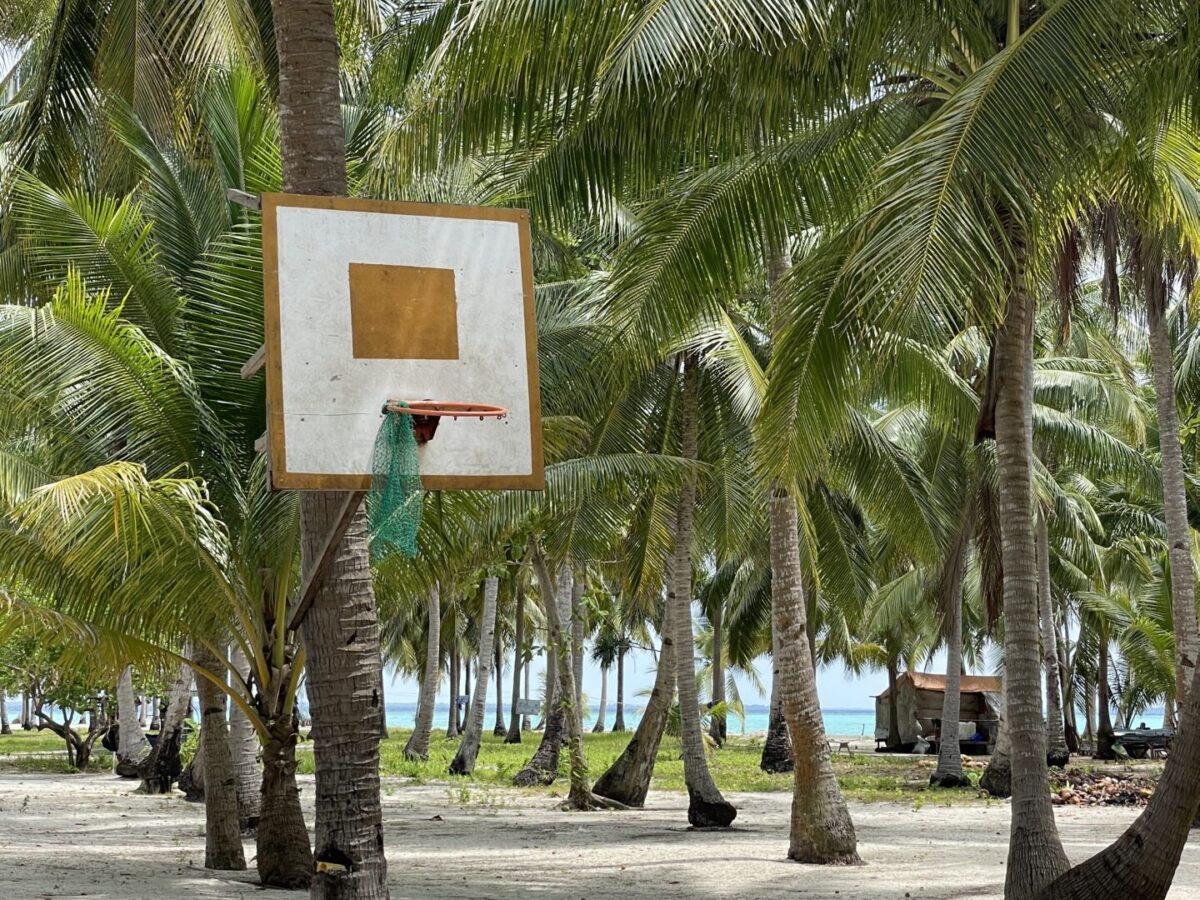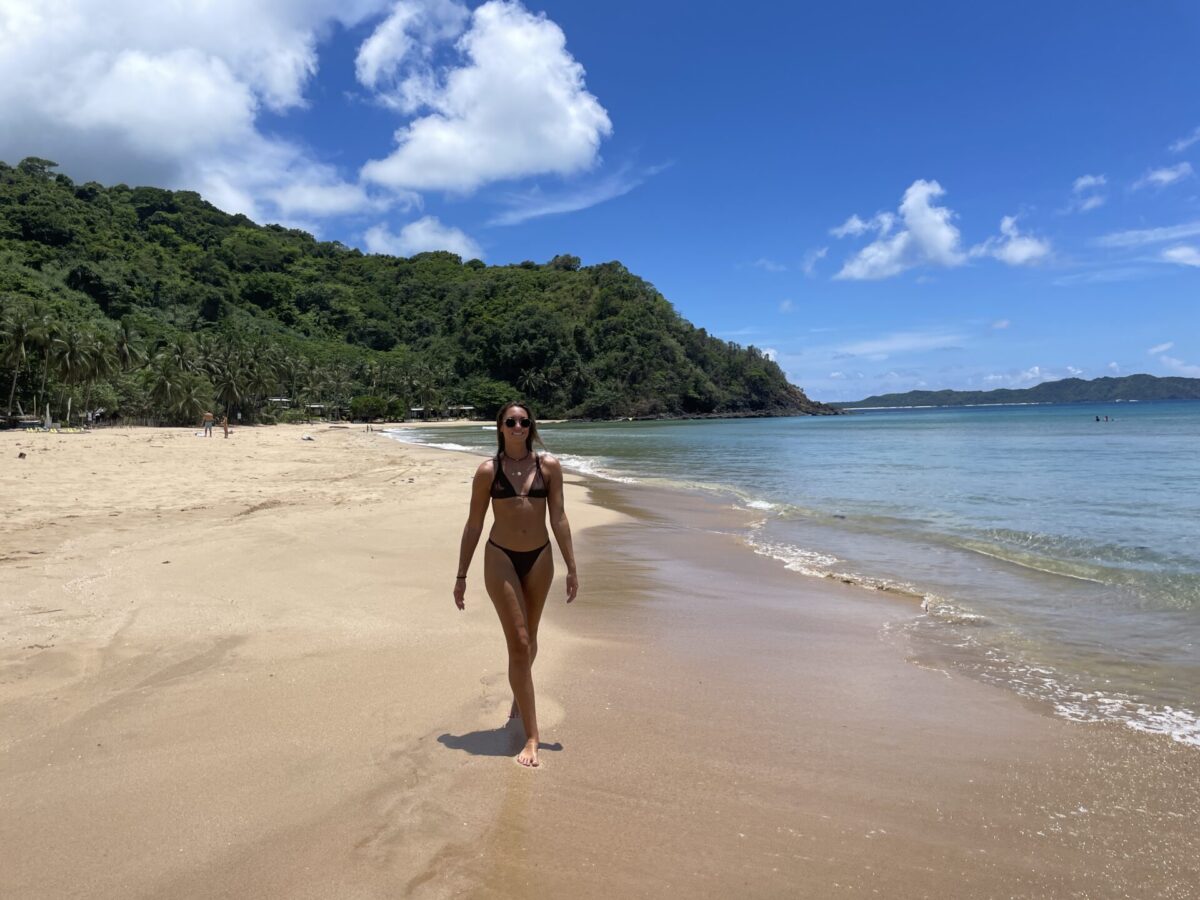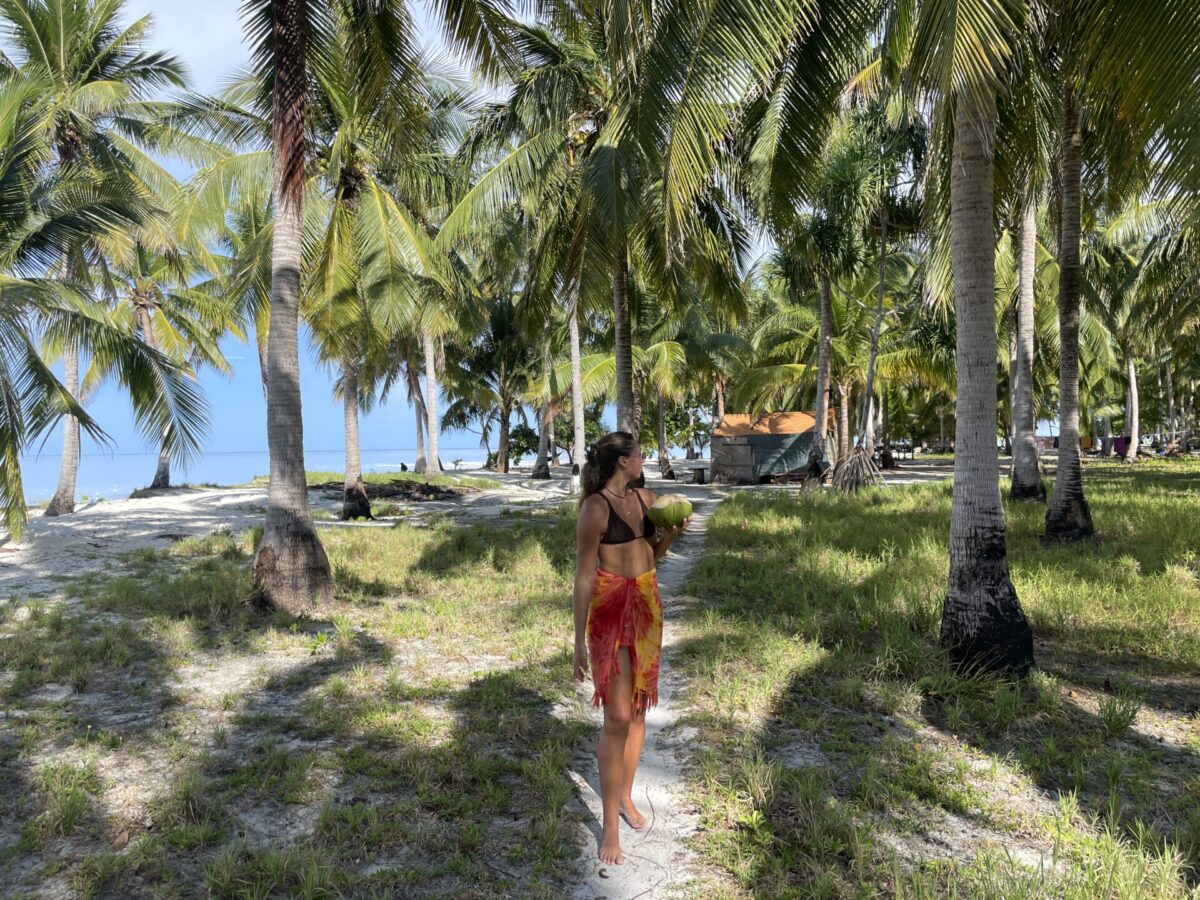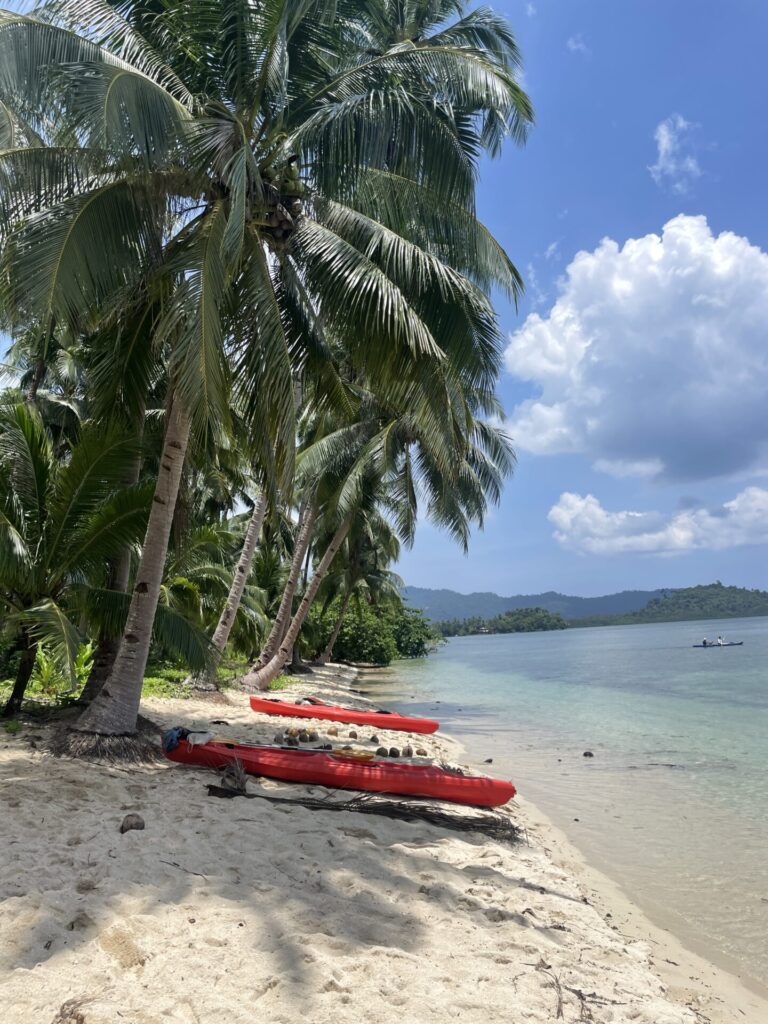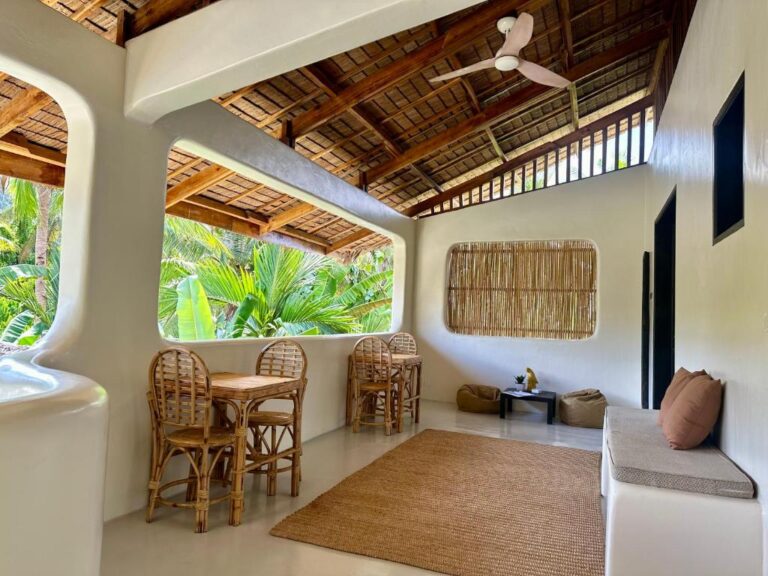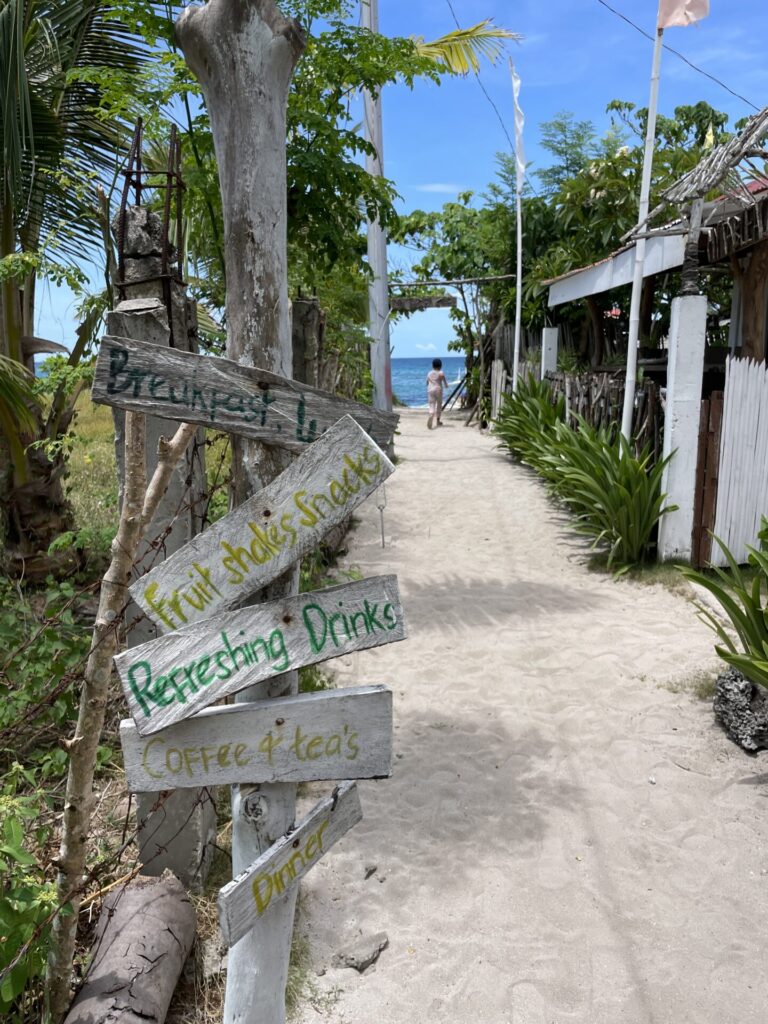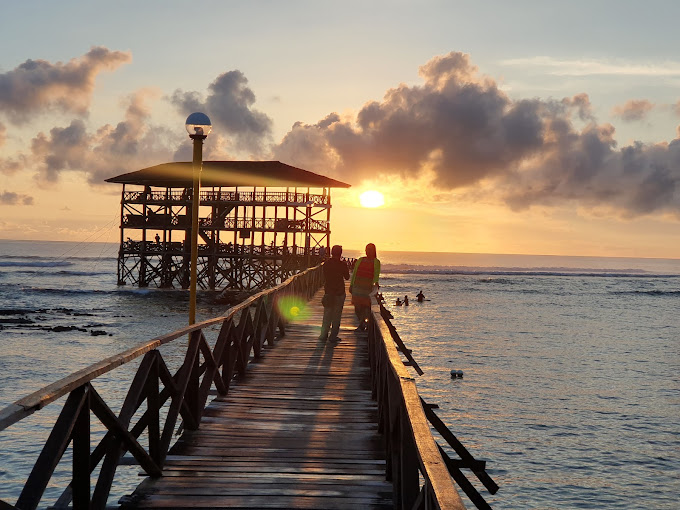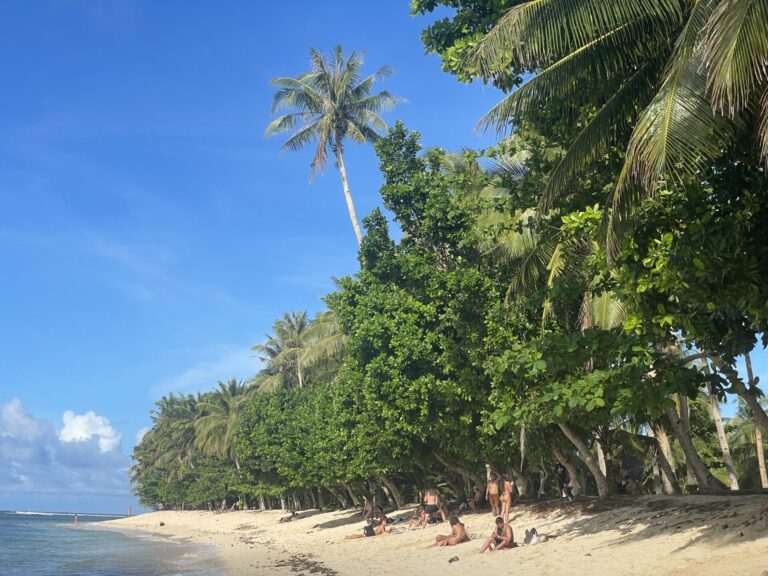Cambugahay Falls Siquijor: My Experience, Tips & What It’s Really Like in 2026
Siquijor isn’t usually at the top of the list for travelers coming to the Philippines and that’s exactly why I liked it. It’s a bit under the radar, especially for international tourists, and still feels like it belongs more to locals and backpackers than package holiday crowds. The beaches are quiet, the vibe is slow, and the whole island has this slightly mysterious edge to it. (They don’t call it the island of witchcraft for nothing, but that’s another post.)
One of the highlights of my trip was Cambugahay Falls. It’s one of the best-known spots on the island, and to be honest, it deserves the attention. You’ve probably seen the photos, people standing on those bamboo rafts in front of layered waterfalls, the water a ridiculous shade of turquoise. That’s the one.
I’ll admit, I wasn’t sure what to expect. I thought it might be one of those places that looks better on Instagram than in real life. But it turned out to be one of the most fun days I had in Siquijor. I rope-swung into the water at least ten times, explored the different tiers of the falls, and just took a proper break from the heat and dust of the road.
So here’s exactly what it was like, plus how to get there, what it costs, and a few small tips that’ll make your visit smoother and more enjoyable.
In a Rush? Here Are Our Favorite Hotels in Siquijor Philippines
⭐️⭐️⭐️ Coco Grove Beach Resort – Click here for rates & availability
⭐️⭐️Nakabalo Guesthouse – Click here for rates & availability
⭐️Mandala Tribe Treehouses – Click here for rates & availability

Cambugahay Falls – My Experience
I’ll be honest—when we decided to head to Cambugahay Falls one morning, I wasn’t expecting much. I’d seen the photos online and it just looked… crowded. Like full-on Instagram circus levels of crowded. I know, I’m part of the problem too—but still, nothing kills the vibe of a natural spot like a wall of people trying to get the same photo.
So, we made a plan: leave early and beat the rush. We left our hotel in San Juan around 7 a.m., aiming to get there close to opening time at 8. The scooter ride was super easy—barely any traffic—and we even stopped for a coffee on the way. In the end, we arrived at Cambugahay around 10 a.m. Not exactly the crack of dawn, but still early enough.
You’ll see the spot on Google Maps, and when you get close, you’ll know you’re there—there’s a whole line of scooters parked along the road. We pulled in, parked, and bought our entrance ticket (100 pesos per person) at a small booth near the path.
There’s a long-ish staircase down to the falls—just a heads up if you’re not great with stairs—but once you reach the bottom, it’s worth every step. The waterfall is stunning. Proper turquoise water, jungle backdrop, and at that time? Hardly anyone around. I was kind of stunned. Where was everyone?
For 50 pesos you can swing on the rope swing as much as you want—and let’s just say I took full advantage. I must’ve launched myself into the water a dozen times. It was honestly so much fun, and the lack of crowds made it feel even better.
Eventually, we wandered upstream to check out the other levels of the falls. That’s where most of the local families were hanging out—smaller swimming pools, more rope swings, and a bit more of a picnic vibe. I’m guessing some people find the main rope swing a bit intimidating and prefer the gentler setup up top. Fair enough.
But honestly? The main pool at the bottom is where it’s at. It’s the most scenic, the biggest, and the most fun. So after a quick look around, we headed back down and spent the rest of the time there, swimming and swinging into the water with hardly anyone else in sight.
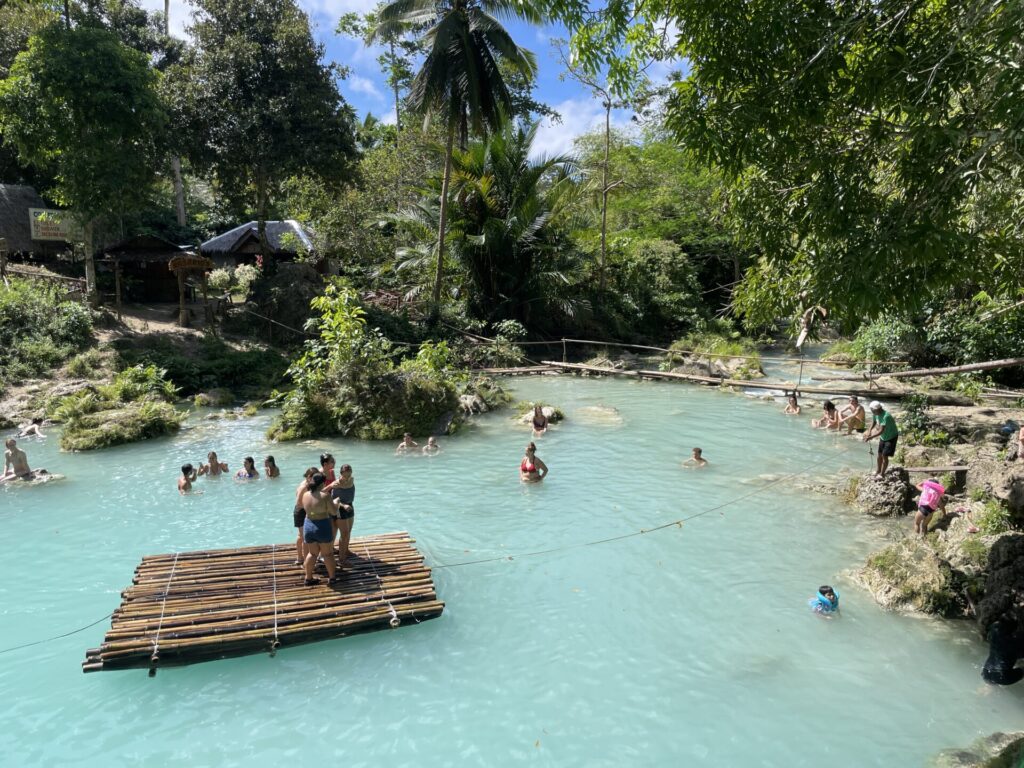


What to Actually Expect at Cambugahay Falls Siquijor
This is the kind of stuff I always want to know before I visit a place—what it’s actually like. Not just the perfectly framed Instagram shots at golden hour that make it look like you’ve got the whole place to yourself (you don’t). And honestly, most travel blogs aren’t that much better. They’ll post that dreamy photo but skip the part where there are 80 people behind them and a souvenir stand blasting karaoke.
Thankfully, Cambugahay Falls isn’t quite like that.
When you get there, the setup is pretty chill. At the top of the road, there are a few snack stalls and cold drink stands, plus the little ticket booth where we paid 50 pesos per person. No parking fee, and no extra hidden charges—just an optional 50 pesos if you want unlimited rope swing action (and yes, you do). All up, about $2.50 USD for the whole experience, which is great value.
Expect a good number of scooters and vans parked along the road, but the actual falls are tucked away down a long flight of stairs. That makes a big difference—you can’t see or hear the street once you’re down there, which really helps the whole jungle waterfall vibe.
Once you get to the bottom, there’s no official changing area or lockers or anything fancy. People just drop their stuff wherever there’s space. There are some wooden tables and benches, but they seemed to be reserved for tour groups. Otherwise, you’ve got little bamboo platforms for the rope swings and a few small huts across the water that might be used for snacks or storage. There are toilets, but like most toilets in this part of the world… temper expectations.
One thing I wish I’d known ahead of time: the rocks are no joke. Super slippery and a few sharp ones too—definitely not barefoot friendly. If you’ve got water shoes, bring them. If not, walk carefully and prepare for some awkward penguin steps.
Other than that, just take your time. Wander around the different levels of the falls—they’re all beautiful in their own way, and it’s totally worth exploring beyond the main pool.

How to Get to Cambugahay Falls Siquijor (And Why You Should Go Early)
Getting to Cambugahay Falls isn’t difficult at all, but you’ve got a few options depending on how you’re exploring the island. We had a scooter rented for our whole stay, which I think worked out to around 400 pesos per day. Split between two people, that’s barely $3.50 USD each—plus a bit of fuel. We just typed “Cambugahay Falls” into Google Maps and hit the road. The drive itself was super easy and actually really pretty, passing rice fields, temples, and stretches of jungle.
If scooters aren’t your thing, you can always rent a tuk-tuk for the day. That’ll probably cost you around 1000 pesos round trip, with the driver waiting for you at the falls for 30 minutes to an hour—depending on the deal you make.
And of course, there’s the full island tour option. It’s a guided day trip that hits all the main Siquijor highlights, including Cambugahay Falls. I don’t usually go for those kinds of tours because I prefer the freedom of a scooter, but if that’s not your vibe or you’d rather not ride yourself, it’s a pretty decent alternative. You can book one through GetYourGuide or Klook, and they usually start around $50 USD for the day.

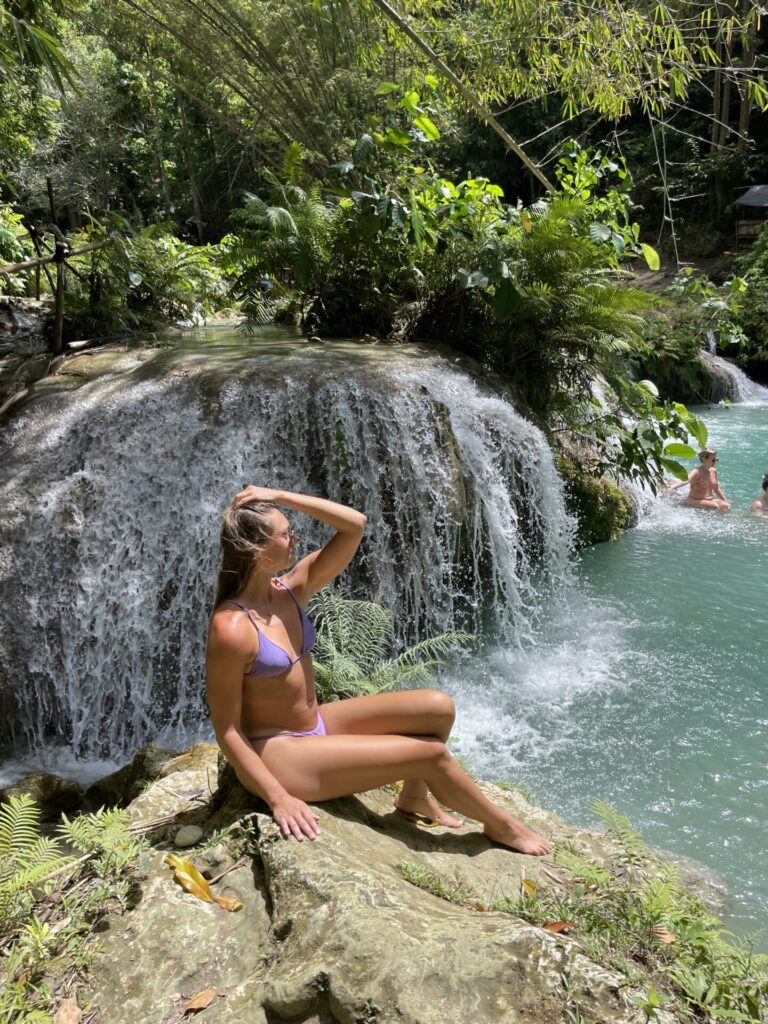

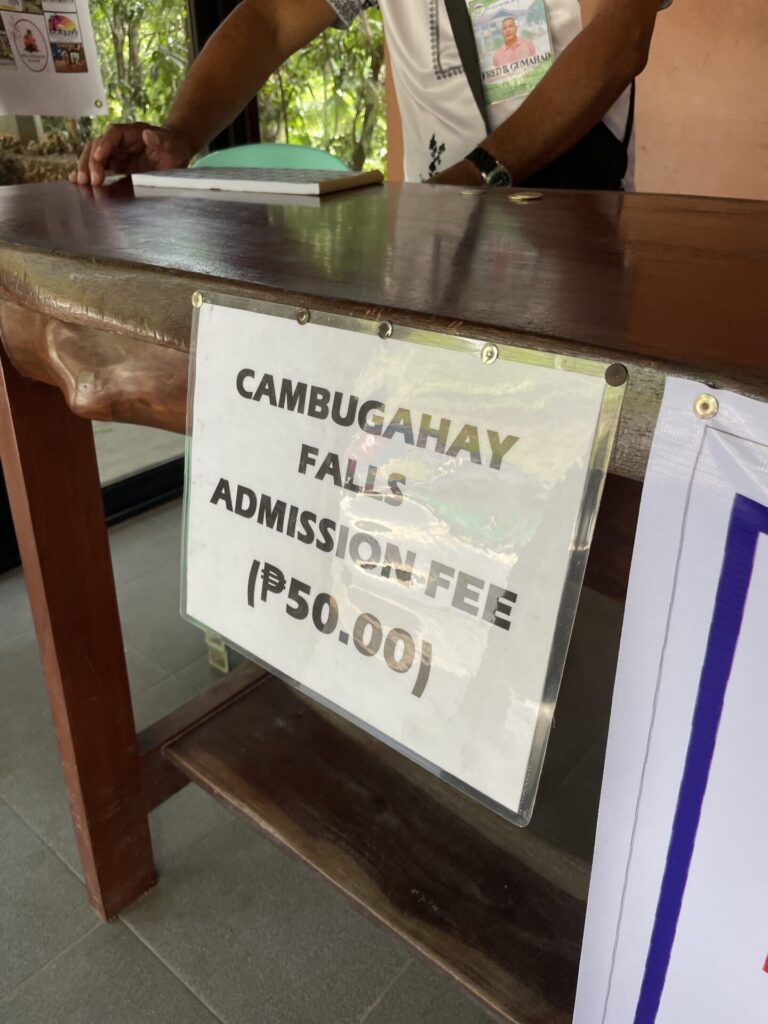
What to Bring & Tips for Visiting Cambugahay Falls Siquijor Travel Guide
There’s not a ton you need to know before visiting Cambugahay Falls, but a few small tips (and things to pack) will make your trip way easier:
- Go early. Seriously—beat the crowds and especially the tour buses that roll in mid-morning.
- Bring small bills. Cambugahay Falls Entrance is 100 pesos, the rope swing is 50 pesos, and drink stands usually can’t break 1000s.
- Pay for the rope swing. It’s 50 pesos for unlimited jumps and way more fun than you’d expect.
- Wear water shoes. The rocks are sharp and slippery—your feet will thank you.
- Bring a dry bag or waterproof phone pouch. Handy for keeping your phone and money safe while swimming.
- Quick-dry towel. If you want to dry off before getting back on the scooter or tuktuk.
- The basics. Water, sunscreen, sunglasses, maybe a snack—nothing fancy, just enough to keep comfortable.

Where to Go After Cambugahay Falls
Since the drive out to Cambugahay Falls is a bit of a trek, I definitely recommend making a day of it and adding at least one more stop after. We went to Pitogo Cliffs next, which was actually really cool. It’s closer to San Juan, so it was on the way back for us. We just typed it into Google Maps—no problems finding it.
Parking cost us around 20 pesos, and the entrance fee was 30 pesos, so super cheap overall. The cliffs are stunning, and we took a bunch of pictures before heading down the stairs to a little ledge where you can actually jump into the water. It felt like being in southern Europe somewhere—super clear blue water, quiet, peaceful. Definitely bring your water shoes again because the rocks down there are sharp.
You’ve also got a few other good options if Pitogo Cliffs isn’t your thing:
- Locong Falls – Way less touristy than Cambugahay, but also not quite as scenic.
- Salagdoong Beach – Further away, but you get cliff jumping and a beautiful white sand beach with turquoise water.
- Paliton Beach – Super Relaxed with blue waters and perfect for sunset.

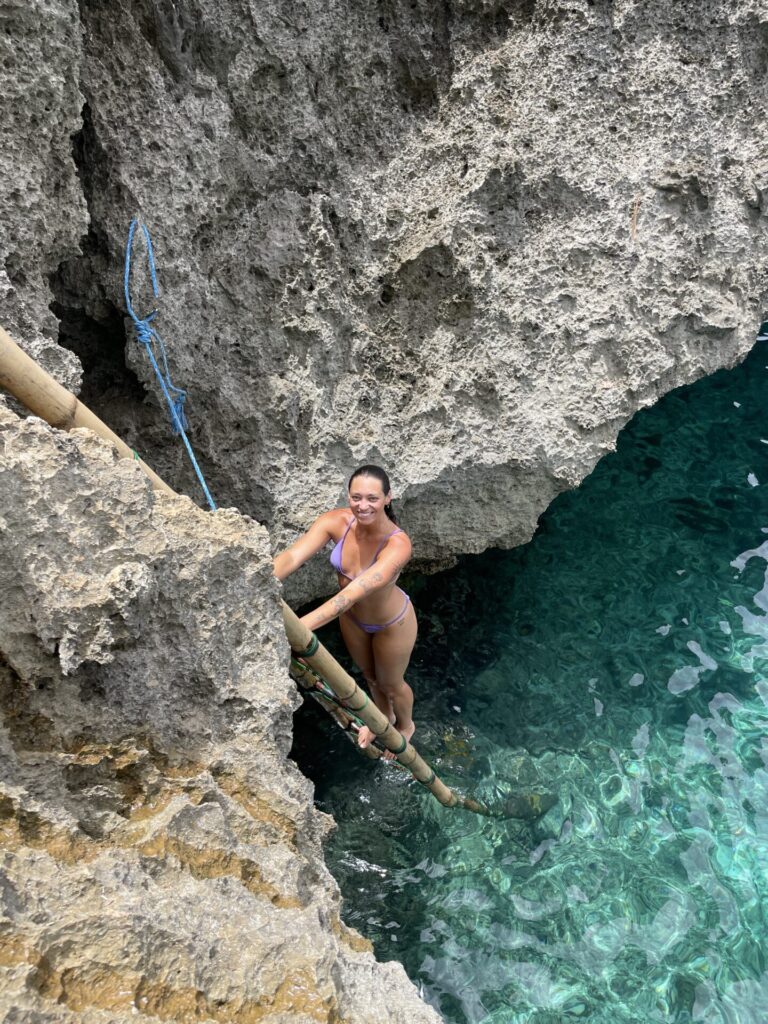
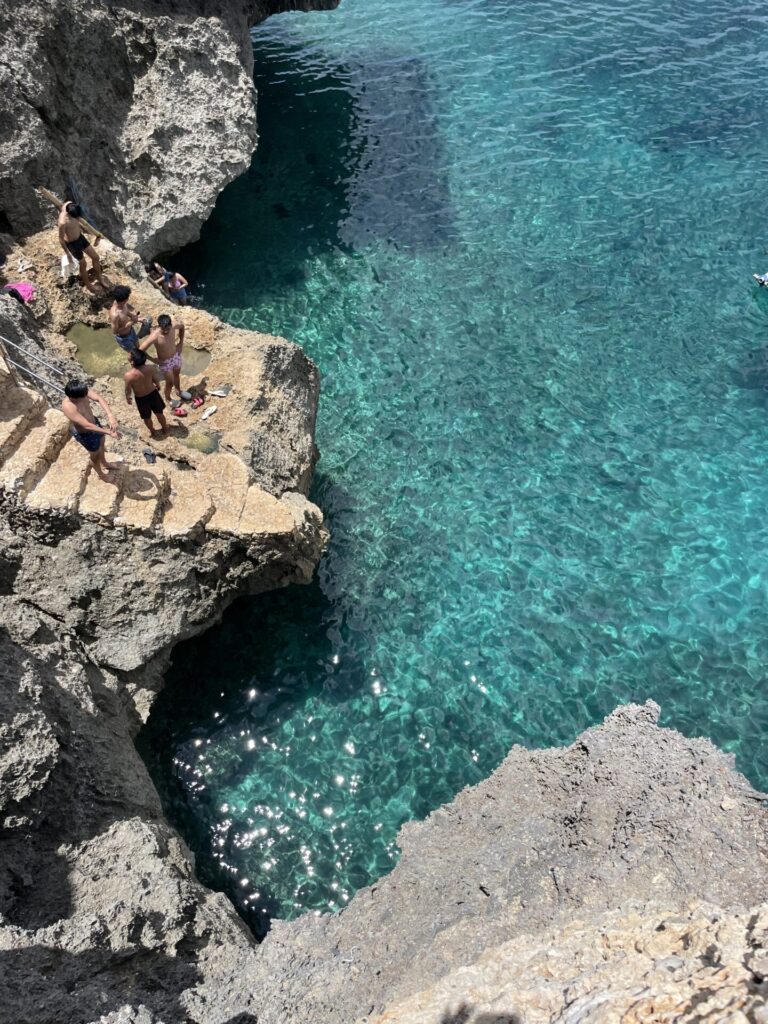
What I’d Do Differently Next Time Visiting Cambugahay Falls Siquijor Island
Honestly? Not a lot. I had such a fun time at Cambugahay Falls. It wasn’t super busy when we arrived, I got some amazing pictures, and I absolutely loved looping the rope swing and jumping into the water. It’s actually a pretty high swing, which made it even better. The weather was perfect too—so overall, not much I’d change.
That said, there are a couple small things I’d do differently. First, I would 100% bring water shoes next time. Getting in and out of the water was kind of awkward with all the sharp rocks around, and water shoes would’ve made it way easier. I’d also bring a dry bag for our phones and money—just to feel a bit more relaxed leaving stuff by the water.
And maybe next time I’d actually get there for 8am sharp. We aimed for it but ended up arriving around 10, and while it was still pretty quiet, getting there earlier would’ve made it even more peaceful.
That’s really it though. I hope this quick little guide helped you get a better idea of what to expect at Cambugahay Falls and how to make the most of your visit.
Check Out My Other Siquijor Guides
Siargao or Siquijor: Siargao vs. Siquijor My Ultimate Comparison
Cafes in Siquijor: My 6 Best Cafes in Siquijor
Restaurants in Siquijor: My Top 9 Siquijor Restaurants
Best Time to Visit Siqujor: When is the best time to visit Siquijor
How to Get to Siquijor: How to Get to Siquijor Travel Guide
Is Siquijor Worth Visiting: Is Siquijor Worth Visiting My Honest Review
Siquijor Beaches: The Best Beaches in Siquijor
Digital Nomad in Siquijor: Remote Work in Siquijor, Is it Possible?
Pitogo Cliff: Is Pitogo Cliff Siquijor Worth Visiting?
Siquijor Itinerary: My 3 Days in Siquijor Itinerary
What to Do in Siquijor: My 8 Top Things to Do in Siquijor Island
Siquijor Hotels: Where to Stay in Siquijor Island
Paliton Beach: My Quick Guide to Paliton Beach Siquijor
Siquijor Resorts: The Best Beach Resorts in Siquijor Philippines
Siquijor Travel Guide: My Siquijor Island Philippines Travel Guide
Related Articles
My Complete Philippines Travel Guide: Everything You Need to Know Before Visiting in 2026
The Philippines was one of my biggest destinations this year. I spent almost three months there, living, working as a digital nomad, and exploring as much of the country as I could, and it’s definitely earned a special place in my heart. It’s for sure one of the most beautiful countries I’ve seen so far.…
My Perfect 2 Week Philippines Itinerary: What I Did & Loved in This Island Paradise
The Philippines is without a doubt one of the most beautiful countries in Southeast Asia, maybe even the world. I’m sure you’ve seen all those photos of palm trees, sandbars, incredible white sand beaches, and towering limestone cliffs. And yes, it really does look like that. But with over 7,000 islands, figuring out where to…
My Ultimate Balabac Palawan Travel Guide: What I Loved & Everything You Need to Know (2026)
Balabac is a group of small, remote islands in the far south of Palawan and honestly, it’s one of my favorite places in the Philippines. The islands I visited on that trip were absolutely stunning: untouched, remote, lined with palm trees, white sand, and amazing turquoise waters. I spent four days exploring the area, and…
